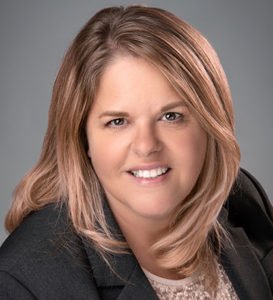
By Jan Nelson, Trust Officer
The new year is a great time to revisit items you may have been putting off. One item you should take care of sooner rather than later is reviewing your estate plan. In order to help you start the year off right, here are our top reasons to review your estate plan.
- Major Life Changes. Life is dynamic and major life changes can significantly impact your estate plans. Consider theses moments as triggers for review:
- Marriage – Update your plan after tying the knot. Include your new spouse, and possibly stepchildren, if desired. Have your wishes align with your current family structure.
- Divorce or Separation – Following a divorce, adjust provisions related to your ex-spouse and consider removing them from your power of attorney and living will.
- Birth or Adoption – The birth of a child or grandchild is a great time to update your estate plan so they are included. Likewise with the adoption of a child or grandchild.
- Illness or Disability – If someone relevant to your estate plan faces a serious illness or disability, make sure you review your documents promptly.
- Financial Changes. Your financial situation is ever evolving. If your net worth has grown (or declined) substantially, this could affect your estate plan.
- Change to your State of Residence. Different states have different laws. If you have changed your state of residence, have a qualified estate planning attorney review your plan to make sure it complies with local regulations.
- Tax Law Updates. Tax laws change every year. Reviewing your estate plan periodically can help you take advantage of tax-saving opportunities, while also making sure your plan still conforms if other provisions of the law have changed. With the Tax Cuts and Jobs Act and its historically high estate tax exemptions set to expire at the end of 2025, check now with your attorney and accountant to see if this may affect you. Local attorneys have told us they are well in the midst of planning for this possible sunset, and it may not be possible to complete the planning if started too late.
- Evolving Family Dynamics. Family relationships also evolve over time. Oftentimes a family member may need financial support now with the condition that other beneficiaries will get a larger share of the estate to equalize. One important thing to note is that if you are planning on doling out unequal inheritances to “equal” individuals such as your children, you may want to have the conversation now to explain the reasoning behind the decision.
- Peace of Mind. Regular updates provide peace of mind, knowing your wishes are up-to-date and aligned with your current life stage. It doesn’t matter if you’re in your 20’s or 90’s, everyone should have some sort of estate plan.
Estate planning isn’t a one-time task. Regular reviews ensure your legacy remains intact and your loved ones are well-cared-for. We encourage you to revisit your estate plans periodically to safeguard your financial future.


 We have all heard the horror stories about families being torn apart after their parents pass away. Brothers, sisters, and long-lost family members who have spent years in court fighting over land, money, family heirlooms – big and small – and more. There will never be a family Christmas or birthday celebration together again.
We have all heard the horror stories about families being torn apart after their parents pass away. Brothers, sisters, and long-lost family members who have spent years in court fighting over land, money, family heirlooms – big and small – and more. There will never be a family Christmas or birthday celebration together again. Whether you have a last will and testament or not, your estate may have to go through the probate process. Probate is the legal process to administer and settle the estate of an individual who has passed away. When a person dies, their estate consists of assets, both real and personal property, they own on their date of death. It also includes the decedent’s debts, final expenses, and unpaid taxes. Somebody needs to be in charge of an estate to settle the affairs on behalf of the decedent.
Whether you have a last will and testament or not, your estate may have to go through the probate process. Probate is the legal process to administer and settle the estate of an individual who has passed away. When a person dies, their estate consists of assets, both real and personal property, they own on their date of death. It also includes the decedent’s debts, final expenses, and unpaid taxes. Somebody needs to be in charge of an estate to settle the affairs on behalf of the decedent.
 Here at Heartland Trust Company, we are proud of the great reputation we have built in the community over the last 30 years. We know that if we do business the right way, we will be here for a long time. Our mission statement says it all: “We provide a lifelong commitment to the well-being of those we serve.”
Here at Heartland Trust Company, we are proud of the great reputation we have built in the community over the last 30 years. We know that if we do business the right way, we will be here for a long time. Our mission statement says it all: “We provide a lifelong commitment to the well-being of those we serve.” Oftentimes when I am meeting with clients, we spend a significant amount of time focusing on fully understanding their personal and financial lives. This allows us to make sure that we can holistically address all of their needs, goals, and dreams for the future.
Oftentimes when I am meeting with clients, we spend a significant amount of time focusing on fully understanding their personal and financial lives. This allows us to make sure that we can holistically address all of their needs, goals, and dreams for the future.